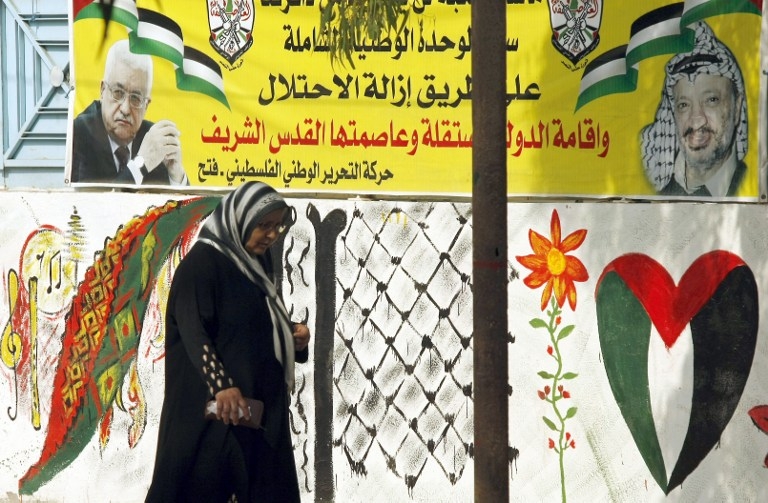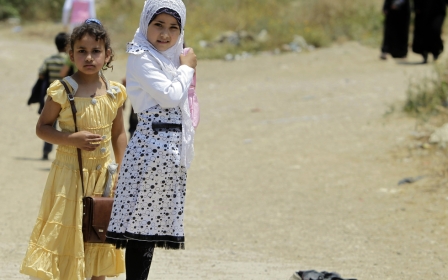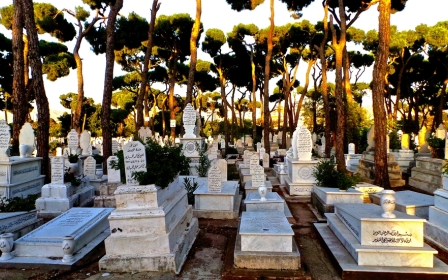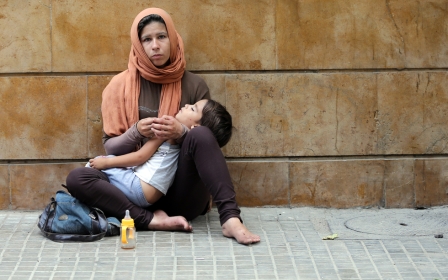Freedom on hold: Palestine solidarity movements in Lebanon

The global Palestine solidarity movement has surged over the past few years. What started off as a series of small grassroots movements led by students, women’s movements and other organisations has now reached a point where governments are finally admitting the occupation is a problem and criticising Israeli violations of international law. Moreover, the global boycott, divestment, and sanctions movement, known as BDS, has given the movement a new non-violent tactic to use. Even the European Union has gone as far as labelling Israeli settlement goods.
However, the BDS and Palestine solidarity movement is stagnating where most would assume it would be thriving. Despite harbouring a large population of Palestinian refugees since the Nakba of 1948, and having endured an Israeli occupation itself, Lebanon’s efforts and impacts towards justice for Palestinians have been minimal, both from the state and the grassroots.
Stagnating movements
Lebanon has failed to take action in support of Palestine beyond sporadic and disorganised demonstrations in reaction to specific provocations. They won’t go further than a relatively impromptu solidarity rally for Gaza during an Israeli military operation or a demonstration against an international band or academic that has included a city in Israel on their tour.
Boycott campaigns surfaced in Lebanon around three years prior to the inception of the Palestinian-led BDS movement in 2005. However, the campaigns were organised by different groups with different mechanisms and ideas, never developing into anything robust. “There was a campaign during the [2002] siege[s] on Ramallah which lasted for a couple of years,” says Ghassan Makarem, a Lebanese researcher at the Arab NGO Network for Development and a member of the Lebanon-based organisation, the Socialist Forum. Makarem believes that this sparked the emergence of other initiatives, but only one active organisation remains, Qati’oo (Boycott), led by journalist and Arabic children’s book author Samah Idriss.
The Lebanese establishment interferes
Solidarity with Palestine in Lebanon does not primarily come from the grassroots, and if it does, there is often influence from a political party from Lebanon’s tenacious establishment.
Makarem was part of Qati’oo during its early stages, but later disassociated himself with it, citing several internal problems, many he believes are linked to the establishment’s involvement.
“[Qati’oo] are the most active when it comes to Palestine-related work, but they choose not to identify with the global BDS movement,” says Makarem. This is something that continues today. When Qati’oo had a launch event for their app that identifies products in grocery stores that contribute to the occupation, there was no mention of the global BDS movement whatsoever, technically isolating Lebanon from the global movement.
Despite Makarem identifying this as a problem, he believes that the root of the problem is interference from elements of Lebanon’s political establishment. First of all, local solidarity campaigns have been colonised by elements of the Syrian Social Nationalist Party (SSNP). The party does not believe in the establishment of a Palestinian state, as does the vast majority of Palestine solidarity movements. Instead they advocate a Greater Syria which includes Palestine, suggesting that their interests may be different.
Another establishment party that has always been vocal about Palestine is Hezbollah, which strongly advocates Palestinian self-determination and the right of return. While they are credited for liberating Lebanon during the Israeli occupation of Lebanon, which lasted from 1982 until 2000, many have raised questions about its opposition to the withdrawal of Syrian troops from Lebanon in 2005, as well as its support for the Assad leadership against the popular uprising in Syria. This political culture completely opposes what the global BDS movement stands for, which is ending the occupation, and pressuring Israel to comply with international law.
Makarem stated that he, alongside others, have tried to call out some of the problems within these campaigns at meetings, including Qati’oo, but to no avail.
Considering that the global BDS movement’s campaigns have been comprised of students, unions, women’s rights groups, local houses of worship, and other grassroots organisations, what’s happening in Lebanon looks like a case trying to fit a square peg in a circular hole.
Palestinians in permanent purgatory
According to the United Nations Relief and Works Agency for Palestine Refugees (UNRWA) there are around 450,000 registered Palestinian refugees across 12 refugee camps in Lebanon. Whether their families fled in 1948 or in 1967, they have one thing in common: they live under abysmal conditions. The overcrowded and impoverished camps reinforce their hopelessness and subjugation, where access to potable water and electricity is a daily and primary struggle.
By law, Palestinians are banned from many professions in Lebanon and are barred from entering the majority of professional syndicates. Their livelihoods almost entirely rely on UNRWA, which provides basic services, including healthcare and education. Putting almost half a million refugees under the management and protection of an organisation has created a false sense of statehood; while they remain stateless, they remain in the shadows of society. In short, deeming Lebanon’s Palestinian refugee population second-class citizens would be putting their abject situation lightly.
Hala al-Aqraa, a Palestinian social worker from Ain el-Helweh, arguably Lebanon’s most dangerous refugee camp, still has trouble completing the most mundane tasks on a daily basis. “It takes about an hour to leave the camp because of the military checkpoint, due to both incessant inspections and the traffic they cause,” says al-Aqraa, who currently works at a local NGO that works with underprivileged children and refugees. “The most basic things require documentation of some sort, even if I want to move furniture or a fridge into the camp.”
With UNRWA recently cutting its budget and reducing the availability of some its services, how is it that the existing movements on the ground and the political parties they sympathise with have not also looked inwards and taken the initiative to improve the basic rights and well-being of Palestinian refugees in Lebanon?
“It’s all lip-service,” said al-Aqraa, who claims that she among many other Palestinians have lost faith in any part of the Lebanese establishment taking action to improve their situation. On a grassroots level, Ghassan Makarem among others have tried to confront the silence on that matter, but according to the activist, this particular issue appears to be off limits, or as we say here in Lebanon, a “red line”.
While both the Lebanese state and its “pro-Palestine” political parties often make the excuse that their lack of action towards the rights of Palestinians in Lebanon is in order not to deprive them of the right of return, one would not be surprised of the racist and sectarian motives behind such an excuse. After all, the majority Sunni makeup of Palestinian refugees, and the sectarian and political balancing act, is part of Lebanon’s political foundation.
Existence is resistance: Palestinians take action
Palestinians in Lebanon have already taken action to try and improve conditions from within, despite their communities being segregated from the rest of Lebanese society. However, the camps, governed by local popular councils and committees, have been overrun by their own factions, including Fatah, Hamas, and the PFLP. The youth have been trying to challenge these committees, and, in some instances, have tried to take matters into their own hands. For example, in Beddawi camp, Palestinians have been dealing with a surge of harassment and mugging at night on poorly lit narrow streets and alleyways. The camp’s residents created a mirror system that would reflect what little light they had to help pedestrians get home safely. But such initiatives only scratch the surface.
Palestinian refugees in Lebanon support the various initiatives for Palestine and the change in global rhetoric towards the occupation; however, when your daily routine includes sorting out electricity and potable water, boycotting certain brands certainly cannot be a priority.
“What is needed is some kind of ‘life resistance’,” says Hala al-Aqraa, “The Lebanese state needs to treat us like humans and allow us to have our basic human and civil rights.”
All in all, the Lebanese establishment continues to hijack Palestine solidarity movements in the country, allowing them to continue as spineless campaigns that offer nothing but lip-service to Palestinians under Israeli occupation. It’s time for these short-sighted campaigns to turn into fully fledged and principled movements, starting by listening to Palestinian refugees, who to this day have been living under appalling and disgraceful conditions.
Kareem Chehayeb is a Lebanese writer and musician based in Beirut. He is the co-founder of Beirut Syndrome, a grassroots media platform. You can follow him on Twitter @chehayebk
The views expressed in this article belong to the author and do not necessarily reflect the editorial policy of Middle East Eye.
Photo: A Palestinian woman walks in Ain al-Helweh refugee camp, on the outskirts of the southern Lebanese city of Sidon on 19 June, 2012 (AFP).
New MEE newsletter: Jerusalem Dispatch
Sign up to get the latest insights and analysis on Israel-Palestine, alongside Turkey Unpacked and other MEE newsletters
Middle East Eye delivers independent and unrivalled coverage and analysis of the Middle East, North Africa and beyond. To learn more about republishing this content and the associated fees, please fill out this form. More about MEE can be found here.





